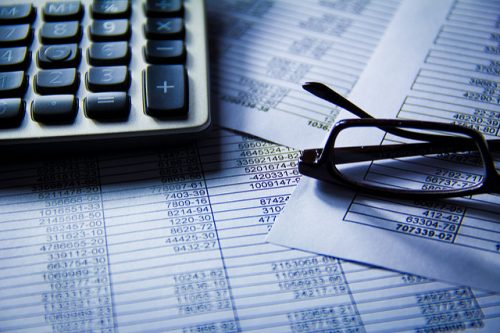Earnings Per Share (EPS)
Capital market participants probably watch, analyze and discuss earnings per share more than any other financial measure. Managers talk about EPS when they announce earnings and often include graphs and discuss EPS in annual reports. All financial news websites report EPS. As a business reporter, what should you think about when managers announce EPS?
First and foremost, many managers and capital market participants believe that high or increasing EPS means that share price should also be high or increasing. However, a one-directional relationship between EPS and share price is not supported by finance theory or academic empirical research. Not every transaction or event that improves EPS is expected to increase share price. As a business journalist, investigating the causes behind EPS changes, and whether those causes have influenced share price or not, could yield interesting article topics.
Broadly speaking, the following categories cause EPS changes:
- real business activities
- earnings management strategies
- share buybacks
Other causes exist, but these are the important categories. Real business activities include more efficient and effective sales processes, better inventory management that leads to changes in operating margins, better customer cash collection processes, acquisitions of other entities, better maintenance of assets, etc.
Earnings management strategies include efforts to manipulate the accounting system to improve earnings. Purposefully understating uncollectible customer receivables to increase earnings is an example. Purposefully stopping research on a new product with the goal to reduce expense and increase earnings to meet an earnings target is another example. Last, share buybacks are prevalent among many U.S. public entities and often cause a substantial increase in EPS. Let’s focus on share buybacks because managers and other capital market participants typically misunderstand these the most.
Share Buyback Transactions
Most large U.S. public entities engage in share repurchase programs. Frequently, managers and capital market participants assert that share repurchase programs increase share price because they mathematically increase EPS. But finance theory predicts that share buybacks have no impact on share prices. Let’s explore this idea.
First, EPS in its simplest form is earnings divided by the number of shares outstanding. In practice, it is complicated to calculate EPS because it is earnings (actually earnings available to common shareholders) divided by the weighted average number of shares outstanding over the accounting period. Calculating the weighted average number of shares can be involved if there are share repurchases, stock splits, stock dividends or shares issued. Also GAAP requires both a basic and diluted EPS number. Diluted EPS takes account of any financial instruments (e.g. employee stock options) that could be converted into shares and that if they were, would lower EPS. Warrants, convertible debt and convertible preferred stock are some potentially dilutive securities that, if converted, could dilute EPS. It is a hypothetical number because companies don’t always exercise employee stock options (perhaps an executive resigns or is fired), or convertible debt is retired without being exercised. If you are interested in the complexities of EPS calculation an Internet search will yield numerous resources or you can email me and I’ll help.
To build intuition for share buybacks’ effects on EPS, consider a very simple company worth $1,000 at the beginning of its fiscal year, Jan. 1, 2016. The company’s value is $1,000 because the company consists only of a savings deposit bank account with a $1,000 balance that pays the market rate of interest, say 2 percent. This company has no opportunities for above-market investments at this time so the company will maintain the bank account. There are two shares. You own one and a colleague owns the other. No debt exists, nor any plans to issue debt. How much is each of the shares worth? Well, it isn’t a trick question. Each share is worth $500. Since the bank account pays 2 percent interest per year, the market rate, at the end of the year, earnings will be $20 (two percent of $1,000) and EPS will be $10/share. The value of the company is $1,020 or $510 per share on Dec. 31, 2016.
With this scenario in mind, suppose that on the last day of the year your colleague wanted to sell her share back to the company. How much would the company offer to buy your colleague’s share? The answer: $510. You would not want the company to pay more because the company could buy the exact same asset for $510 by opening another bank account and paying the market rate of interest, 2 percent. At the same time your colleague would not sell it for less than $510 because similar assets (bank accounts) are worth $510. The only fair price to transact at is $510.
But if the company did buy your colleague’s share at the end of the year for $510, the fair price, EPS (calculated simply and not technically correct but OK for this illustration) would be $20 (earnings of $20 for the year divided by your one share outstanding) instead of the original $10/share if your colleague had not sold. Which is better for your share price, the $20 EPS or the $10 EPS? The answer: it does not matter. Your share price is $510 either way.
This highly stylized example illustrates that share repurchases can increase EPS but not alter share price because the repurchase of shares is assumed to be at a fair price. Another perspective on this issue is to simply ask: If share price increases when entities buy their own shares back, who sells knowing that? I recommend that you consider, as a base case, that share buybacks do increase EPS but do not increase share price.
Some complications
That stated, let’s consider several real-world complications to this base case:
- Managers are insiders and could time share buybacks to buy at a low price with insider knowledge that share prices will increase. There is little if any academic research indicating that this happens to any economically meaningful degree and, as would be expected, the U.S. SEC has regulations restricting that sort of unfair dealing.
- Managers might execute share buybacks to signal good news about the future. If so, in my experiences managers will also announce the good news. Most likely, the share buyback itself isn’t causing a share price increase, the announcement of the good news causes the increase.
- Share price increases with share buybacks because capital market participants think that managers are so undisciplined that buying back shares helps them avoid using an entity’s resources to make wealth destroying investments. Apple, for example, has about $50 billion in cash and short-term marketable securities. One has to admit, it would take discipline not to mismanage at least some of that cash and securities.
- Entities may issue debt to buy back shares. But finance theory predicts no change in share price from such activities. There are of course many other potential complications to a base case understanding that share buybacks increase EPS but don’t change share price.
A reasonable perspective is to use the base case as a starting point, then ask why any of these complications and others would significantly influence share price.











